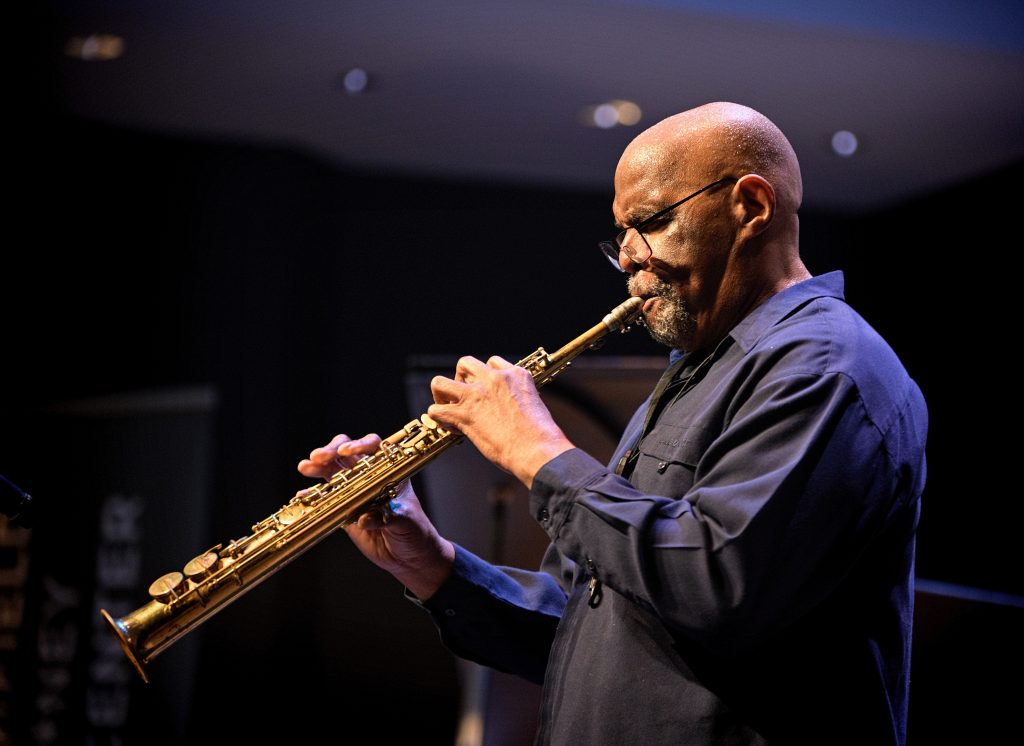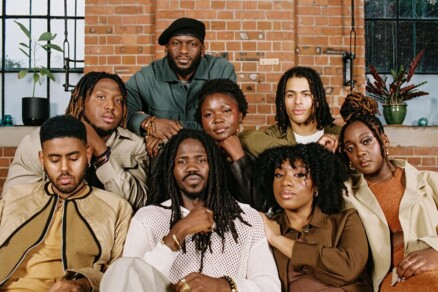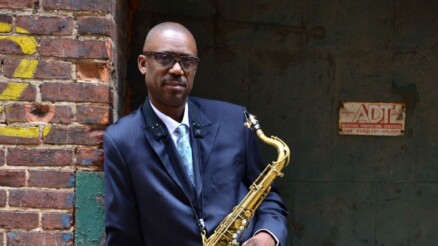The musicians’ musician: Celebrating the life and legacy of Joe Ford

Among musicians, Joe Ford was a household name. Although the mainstream media never quite caught on to the saxophonist’s musical prowess, Ford’s passing on May 25 has led to a cascade of reflections from friends, contemporaries and musical successors, highlighting his humility, generosity, authenticity and originality.
Ford’s expansive career spanned over 50 years. He first took the stage as a pre-teen playing on Buffalo, N.Y.’s Channel 4, which hosted a Sunday morning kids talent show throughout the ‘50s and ‘60s. Soon after, according to Ford’s longtime friend Nasar Abadey, he was invited to play piano for the Buffalo Philharmonic youth concert series, and, as an adult, went on to work as a sideman for bandleaders like McCoy Tyner and Jerry Gonzalez as part of the latter’s Fort Apache Big Band. His most notable work in the District was arguably his participation as a key collaborator and composer in Nasar Abadey’s Supernova, and as co-creator of their joint project, entitled Birthright.
“As a person, Joe was very humble. You wouldn’t know, if you saw him walking down the street, that he was a great saxophone player — and he wasn’t going to tell you,” said Abadey. “He spoke through his horn. He didn’t speak through his mouth.”
Ford’s work with Abadey and Supernova made him a mainstay in the DMV, frequenting legendary local venues like Blues Alley, Bohemian Caverns and the Kennedy Center. “Joe was the person that played so well, and came with so much energy and determination,” Abadey said. “That’s what we all wanted to do. We wanted to play this music like it was the last time we’re going to play.”
Ford was just four years old when he first laid his hands on an instrument, immediately displaying an acute ear for chord progressions and harmonic movements. Abadey recalled a story in which, at age four or five, Ford helped direct his aunties’ gospel singing group rehearsals.
“He would go up to the piano and play a note and he would say ‘you should sing this note,’ then he’d play another note and say ‘you should play this note,’” Abadey shared. “He knew harmony already but didn’t know that was something, but his aunts and his mother knew: ‘We need to get this guy some lessons.’ And he just ran away with it.”
The young Ford began with piano lessons, developing a fundamental understanding of music theory and practice routines before eventually transferring this skillset to the alto sax.
By high school, Ford and Abadey had joined a quartet led by another budding talent a few years their senior — the late tenor saxophonist Charles Gayle — which helped establish their careers and found them frequently gigging around their hometown of Buffalo.
Aside from Ford’s exceptional tone quality and distinctive sound as a saxophonist, his compositions moved with a captivating passion and spirit that connected his audience and fellow musicians alike.
“Joe was the kind of musician — everyone thought of him this way — that could always play harmonically, melodically. He knew the ins and outs of improvisation from a very young age,” said Abadey. “He had such a leaning towards [a] John Coltrane sound, Cannonball Adderley, Jackie McLean. He always had this sound of buoyancy and urgency, but he was soulful, very soulful, and melodic, and so my approach to this music was coming from the same place.”
After graduating from Central State University in Ohio, Ford went on to teach at Buffalo Public Schools from 1968 to 1975, taking on his first of many formal roles as a teacher. Ford had a notable influence as a mentor, using his intuitive sense for music to shape younger generations of artists. His investment in young talents reflected his deep and overarching commitment to community, a central tenet of his musicianship.
Saxophonist Bruce Williams was one of those talents. Williams hails from D.C., but met Ford in his early 20s as a recent graduate of William Paterson University in New Jersey. Working as a freelancer while figuring out next steps in his career, he began studying with Ford and soon developed a close relationship that transcended that of mentor-mentee.
“I just loved to hear Joe laugh, and we shared a lot between us, dealing with the human condition, health, wellness, our families. He was the uncle, father-like person,” said Williams, emphasizing that this relationship never felt forced. “He was just close to me — we could go without talking for a minute and get on the phone and in 20 seconds, be right back where we were. He always told me he loved me at the end of conversations and that messes me up more than anything. When a man tells you he loves you and you know it’s sincere, it’s deep. There’s this care and patience that he put into me.”
Although Ford only had one studio album released under his own name, a 1993 CD called Today’s Nights, he possessed an amazing ability to deliver mesmerizing, impassioned and melodic improvisations that fused styles of post-bop and free jazz. For Williams, Ford’s music communicated “energy, consistency, love, power, soul and a deep intellect.”
Even those who never got a chance to develop close personal relationships with Ford were impacted by his artistry. Saxophonist Jaleel Shaw shared the stage with Ford only once, but cherished that moment as a chance to collaborate with a musical inspiration.
“When you listen to Joe Ford, you think about originality, you think about honesty.”
“He’s truly a hero and, for me, I’ve always thought that he’s an unsung hero. He’s always been one of the most amazing musicians that I’ve heard that I always feel like deserved way more recognition,” said Shaw. “Such a great writer, such an amazing, not only alto saxophonist, but soprano saxophonist. The sound that he got on the soprano for me is one of the best soprano saxophone sounds ever.” However, it was Ford’s welcoming attitude which may have had the deepest impact on Shaw. “To be a master at that level and for me just to get to play with him, I was a little bit nervous. But he embraced me as if I was someone that he had known for a long time. We had a good time on the stage and we stayed in touch.”
Now, as a teacher, Shaw makes a point of introducing his students to Ford. “When you listen to Joe Ford, you think about originality, you think about honesty. I hear that in his sound. He’s not trying to be anyone but himself. It’s something that stands out and… it’s something I talk to my students about. … I think he will continue to influence people to embrace their sounds. That’s what he did.”
Williams attributed Ford’s distinct sound to his ability to draw from his musical predecessors while still managing to find unique qualities for himself. “Although you could tell he liked a lot of our forefathers, he was his own man,” said Williams. “There’s always this supposed gatekeeper mentality [with] those who hold the gate, and ones who push it open. The reality is you gotta learn where you came from in order to go forward, but you still got to try to go forward.”
This forward-thinking approach helped establish Ford’s imprint on D.C., said Williams. “Historically, dealing with the alto, D.C. is really like a Jackie McLean [and] Sonny Stitt town,” Williams explained. “And Joe, being inspired by Jackie but not necessarily a Jackie devotee, anybody with a good ear can hear that there’s a lineage. There’s a connection based on tone and attitude. And Joe possessed that. Playing with Nasar, meeting so many younger musicians and guys on the scene, since Joe was really friendly, made it easy to attach yourself to Joe. He was very giving, encouraging, and was just all-around good people. ”
Above all, Ford centered community in his approach to music. “This music is not from institutions, although it’s in institutions. … It’s about what’s in the hood, what’s in the street,” said Williams. “I learned from Joe from a very grassroots kind of way. And that really makes a difference — really deeply makes a difference — because that’s where the essence of the music is. That’s where the soul of the music is. And Joe represented the soul of the music all the time. Every note, he gave it up, every time.”
DC, DC jazz, jazz, Joe Ford, Washington




